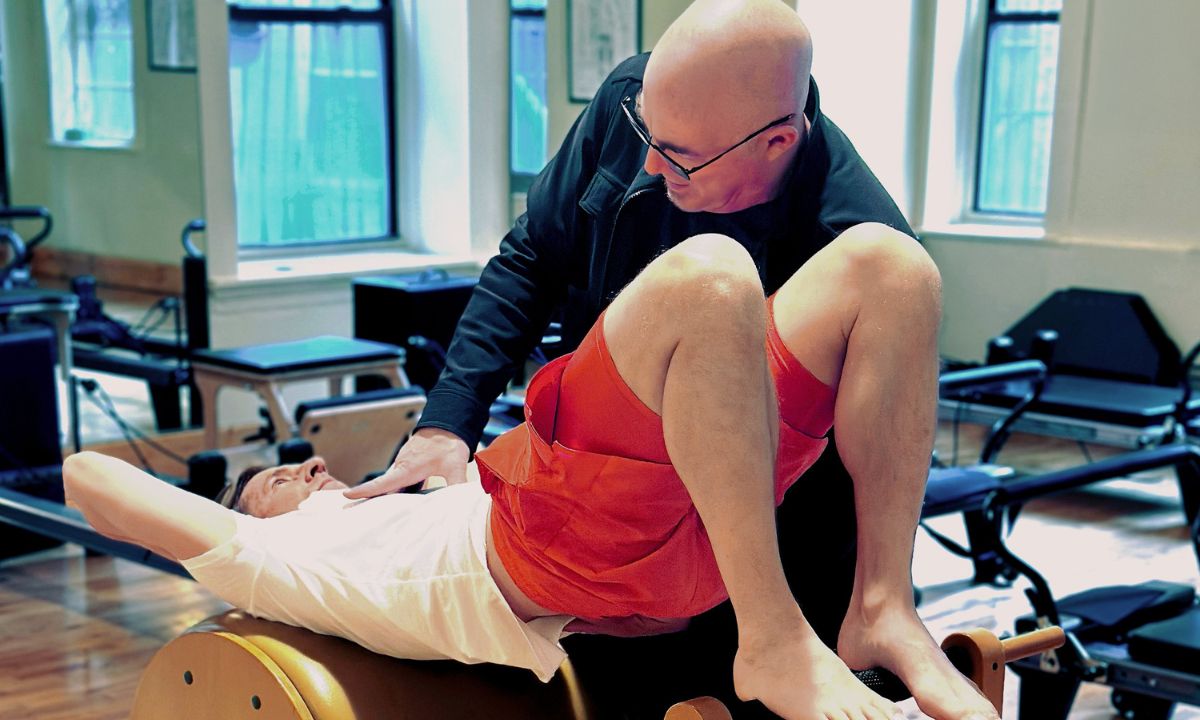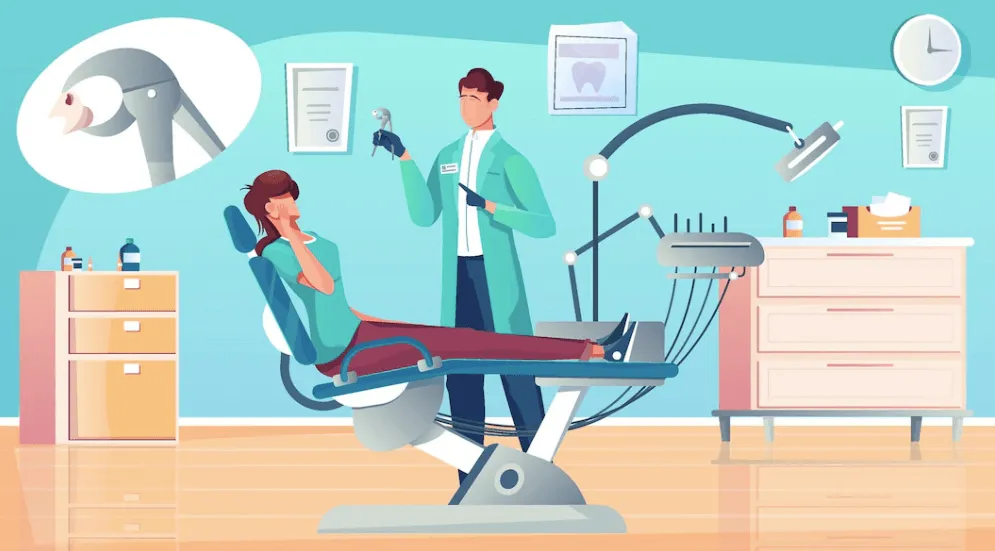Health
NDIS Programs in Adelaide: Understanding its Benefits

The National Disability Insurance Scheme (NDIS) in Australia is a life-empowering scheme for people living with disabilities. Considering its eligibility for young adults and children, the funding helps its participants with NDIS Day programs in Adelaide.
If you are looking for a program, you should first realise its importance before getting started. Because it is highly likely to feel overwhelmed with different options and service quality. And to prevent this confusion, understanding the importance of the right program is the key.
In this blog, you will walk through the program under NDIS, its support services, and multiple benefits. So, keep reading the blog till the end.
Understanding Programs
NDIS programs are activities designed for young NDIS participants. This service is usually available during breaks when the child is ready for a new transition. The primary goal behind the program is to nurture, empower, and build self-reliant skills within school-goer NDIS participants.
With personalised care and growth-oriented opportunities, participants engage in recreational activities with the support of a provider. NDIS programs in Adelaide develop life skills, improve social communication, and boost confidence.
NDIS funding categories like Core Supports usually contain this support under “Assistance with Social and Community Participation.”
The Benefits of Programs
programs are fun, engaging, and life-learning activities at the same time. Here are some of the most significant advantages of this program for young age groups.
1. Skill Development
One of the core goals of these programs is to encourage new skills. NDIS providers in Melbourne design fun activities that look synonymous to life skills. Activities such as cooking, arts and crafts, music, and sports are often personalised. But its benefits to enhance motor skills, cognitive abilities, and emotional regulation are truly unique.
These programs also promote problem-solving, teamwork, and communication, all of which are crucial for a child’s personal and social growth. For example, group activities encourage children to share and communicate with peers.
2. Social Interaction
Social interaction is another beautiful side of these NDIS programs in Adelaide. Many children with disabilities struggle with social engagement. Primarily due to the hesitation, fear, and perspective of societal non-acceptance.
programs, for this reason, help to provide a structured and supportive environment. Children have the opportunity to connect with similar NDIS participants fighting the same struggles and hoping for new change. This allows you to build friendships and develop a sense of belonging.
Through group games, team-building exercises, and community outings, participants learn how to interact in a safe and manageable way. NDIS providers prioritise environments where a child feels understood and supported in their social development.
3. Promote Independence
NDIS programs in Adelaide empower young children to make decisions and take responsibility for their actions. Whether it’s learning to cook a meal, navigating public transport, or completing a group project, the idea is to help children step out of their comfort.
Encouraging independent thinking and action is a major step towards autonomy. And the program benefits the child and families with reassurance of their child’s growth.
4. Fun and Enjoyment
You will only encounter fun developmental activities which help children to pass their time without getting bored in their break time. From arts & crafts to outdoor adventures, NDIS programs in Adelaide allow children to relax and have fun in meaningful activities.
Most importantly, these activities align with the interest and abilities of a person, so there is no worry regarding the child’s safety and disengagement.
5. Respite for Families
programs also offer crucial support to families and caregivers. Caring for a child with a disability can be demanding, especially during the school holidays. These programs provide much-needed respite for families. Having time to rest or attend to other responsibilities is a rejuvenating experience. Particularly when you know that your child is in a safe and supportive environment.
You must expect a child-safe and personalised house for your children. Even the challenging behaviours or persistent patterns get substantial support under this program. You simply have to communicate your child’s concerns, needs, and preferences before considering the right caring facility.
Final Words
We hope you found this blog useful. As you see, NDIS programs in Adelaide provide invaluable support for children with disabilities and their families. These programs offer a structured and safe environment, while emphasising on independence.
Your child, under this program, gets an opportunity to develop new skills, interact with others, and enjoy their holidays, all while receiving the support they need. The idea is to choose the right NDIS provider offering the personalised program.
Through thoughtful planning and dedicated support, NDIS providers in Melbourne are helping families navigate the school holidays with confidence, knowing their child is in a nurturing and empowering environment.
Health
Pilates and Physio: Combining Forces for Optimal Back Pain Relief

Back pain is a common ailment affecting a large portion of the population at some point in their lives. It can range from mild discomfort to debilitating pain that interferes with daily activities and overall quality of life. Managing back pain effectively often requires more than a single treatment approach; it necessitates a comprehensive strategy that addresses the underlying causes and promotes long-term health. Pilates and physiotherapy are two methods that have gained recognition for their positive impact on relieving back pain.
When these two approaches are combined, they can provide a comprehensive solution that enhances strength, flexibility, and functional movement. We will explore how integrating Pilates with physiotherapy at Manly Physio and Pilates creates a powerful combination for managing back pain, emphasizing the unique benefits each offers and how their collaboration leads to improved outcomes.
How Pilates and Physiotherapy Complement Each Other for Back Pain Relief
- Targeted Muscle Strengthening and Core Stability
One of the primary contributors to back pain is weakness or imbalance in the muscles that support the spine. Physiotherapy plays a crucial role in identifying these weaknesses through thorough assessments and customized treatment plans. It addresses specific muscle groups that require strengthening or rehabilitation, helping to restore muscular balance and functional ability. Pilates focuses intensively on the core, which includes the muscles of the abdomen, lower back, hips, and pelvis. Through precise and controlled movements, Pilates develops core strength that stabilizes the spine in both static and dynamic positions. The combination of physiotherapy’s individualized rehabilitation and Pilates’ emphasis on core conditioning helps establish a robust foundation that supports the spine more effectively, reducing the risk of strain and injury.
Moreover, Pilates encourages the activation of deep stabilizing muscles that are often overlooked in traditional exercise programs. These muscles play a crucial role in maintaining spinal alignment and preventing excessive movement that can lead to pain. Physiotherapy programs can incorporate Pilates exercises progressively, ensuring that strengthening occurs in a safe, structured manner tailored to the individual’s condition. This collaborative approach not only enhances physical resilience but also promotes better posture and body mechanics, which are essential for alleviating and preventing back pain over time.
- Enhanced Flexibility and Movement Efficiency
Restricted flexibility and poor movement patterns often contribute to back discomfort. Physiotherapy utilizes stretching techniques and manual therapy to improve the flexibility of muscles and joints around the spine. These interventions help relieve stiffness, increase range of motion, and promote tissue healing. Pilates complements these efforts by teaching controlled, deliberate movements that improve overall body awareness and coordination. Practicing Pilates encourages individuals to move with intention, fostering more efficient and balanced motion that reduces undue stress on the back.
By integrating Pilates, patients become more mindful of how they use their bodies during daily activities, sports, or exercise. This heightened awareness helps them avoid compensatory movements that may place additional pressure on vulnerable areas of the back. Pilates exercises often involve a combination of elongation and strengthening, promoting both length and strength in the muscles that support spinal health. As a result, the body learns to move with greater fluidity and less tension, which can translate into reduced pain and improved functional capacity. Physiotherapists can guide patients through this process, tailoring Pilates-based movements to address specific limitations and goals, ensuring optimal progression and safety.
- Individualized and Progressive Rehabilitation
Back pain presents differently for each person, influenced by factors such as injury history, physical condition, and lifestyle habits. Physiotherapy is rooted in personalized care, starting with a detailed evaluation to identify the causes and functional impairments associated with back pain. Based on this assessment, physiotherapists develop tailored rehabilitation programs that include exercises, manual therapy, and education designed to meet the individual’s needs. Pilates offers a flexible and adaptable exercise system that aligns well with these rehabilitation plans. Its exercises can be adjusted to accommodate various levels of pain, mobility, and strength, making it accessible and effective throughout the recovery journey.
The gradual progression in Pilates allows patients to build strength and endurance at a comfortable pace, preventing setbacks or exacerbations of pain. Physiotherapists can monitor progress closely and recommend modifications to Pilates exercises as recovery advances. This adaptive approach fosters consistency and long-term adherence, both of which are critical for maintaining sustained back health. Additionally, Pilates serves as an excellent maintenance practice after initial physiotherapy goals are achieved, helping individuals preserve improvements and reduce the likelihood of future episodes of pain. The combination of personalized physiotherapy guidance and Pilates’ adaptable exercise framework creates a dynamic pathway toward recovery and ongoing wellness.
- Active Pain Management and Patient Empowerment
Managing back pain effectively requires active engagement from the individual, rather than relying solely on passive treatments. Physiotherapy empowers patients by educating them about their condition, explaining the mechanisms of pain, and teaching strategies to avoid harmful movements. This knowledge enables individuals to take an active role in their recovery and make lifestyle changes that support spinal health. Pilates enhances this empowerment by promoting mindful movement and body control, encouraging patients to connect with their bodies and recognize how certain patterns affect their pain levels.
The integration of Pilates and physiotherapy provides a comprehensive and effective approach to addressing back pain. Physiotherapy’s targeted assessments and personalized treatments identify and correct underlying causes, while Pilates strengthens the core, improves flexibility, and promotes mindful movement. This partnership enhances physical function, encourages active pain management, and supports mental well-being. By combining these two approaches, individuals can experience meaningful relief, develop lasting healthy habits, and improve their quality of life. Embracing both physiotherapy and Pilates allows for a comprehensive journey toward optimal back health and sustainable pain relief.
ALSO READ: Dentistry Work Experience in London: Top Clinics and University Programmes
Health
Dentistry Work Experience in London: Top Clinics and University Programmes

London has some world-class dental schools (think King’s College London Dental Institute, Queen Mary University of London, UCL Eastman). But here’s the rub: work experience placements are fiercely competitive. The big city draws applicants from everywhere, so spots go very fast.
Also, because of strict NHS and university regulations, you might find that getting hands-on (as in, drilling and filling) is tightly controlled. Shadowing’s easy, but true dentistry work experience can be limited to observing unless you’re already pretty far along in your training.
Common Hurdles in London
- High demand, low availability: Lots of students, limited spots.
- Red tape—Health and safety, patient confidentiality, and insurance can make it tricky for clinics to take on students for more than just shadowing.
- Cost of living—Not directly about work experience, but London isn’t cheap.
Clinics vs. University Programs
Dental Clinics
If you’re gunning for hands-on skills, clinics are the real deal. There you’ll see real patients, real-time challenges, and get to shadow seasoned pros who’ve been around the block. There’s a certain “street smarts” you pick up here: patient communication, handling nerves (yours and theirs!), and dealing with the unpredictable.
- Pros—Direct patient care, mentorship from practicing dentists, networking with local professionals, and a taste of the day-to-day grind.
- Cons—Sometimes you might get stuck watching more than doing, and clinics can be busy, so teaching moments might be a bit rushed.
Private practices in central London (think Harley Street) are prestigious, but often harder to get into. NHS community clinics might be more accessible and give a broader patient mix. Some hospitals (like Guy’s and St Thomas’) have dental departments open to student observation—worth checking out.
University Programs/Placements
University-run work experience tends to be more structured. You’ll often rotate through departments, get feedback, and maybe even dip into research or academic side-projects. If you’re thinking about teaching, research, or specialisms down the line, this gives you a broader lens.
- Pros—Organized learning objectives, exposure to academic research, easier access to supervisors, and sometimes a more nurturing environment for newbies.
- Cons—Might be a bit more “by the book,” and sometimes less intense on the real-world drama.
There’s no one-size-fits-all. Your ideal path probably blends both worlds. Let your curiosity and your future plans be your compass. Every awkward first impression, every day of just watching, and every “a-ha” moment builds your skillset and your confidence already.
Doc’s Recommendations
- Mix it up. Try to land a university placement for the academic breadth, then hustle for extra clinic shadowing, even if it’s just a day here or there.
- Network like crazy. Sometimes, it’s the dentist you met at a seminar who’ll let you tag along for a week.
- Think long-term. If academia or teaching might be your thing, university programs give you the inside track. But if you want to hit the ground running as a practitioner, clinics give you the grit.
The One Big Question to Ask Yourself
Before you chase a clinic or a uni placement, pause and ask: “What kind of dentist (or dental professional) do I want to become—and what environment will push me most in that direction?”
Drill down further:
- Do you thrive in the buzz and unpredictability of real-life cases (clinic style)?
- Or do you love structured learning, research, and maybe even see yourself teaching or becoming a specialist (university side)?
- Which kind of challenge excites you more: solving practical day-to-day puzzles, or exploring the “why” behind them?
- Do you want to make a difference in a community, or push the boundaries of dental science?
Sometimes, the “right” path is the one that makes you a bit nervous, but also lights you up inside. If you can, shadow both for a bit—even just for a day. Notice where you feel most yourself.
Networking: The Backdoor Approach
The best opportunities often live just beyond the beaten track.
Tap Alumni Networks
Every dental school has alumni who love helping out curious students. Find them on LinkedIn or your uni’s alumni portal. A message along the lines of, “Hi Dr. Smith, I’m an aspiring dentist at [your school] and would be super grateful for 15 minutes of your advice on finding meaningful work experience in London,” works wonders.
Dental Societies & Conferences
Even if you’re not a member, student tickets or volunteering at dental events puts you in the same room as decision-makers. Shake hands, ask smart questions, and follow up with a quick thank-you email.
Specialty Interest Groups
Are you into orthodontics, pediatric dentistry, oral surgery? Join their student branches or attend a lecture. The smaller the group, the more likely someone will notice and help you out.
Leverage Social Media (Tastefully!)
Did you read an article or see a local dentist featured online? Drop them a thoughtful message saying what you liked about their work and ask for a quick chat. Enthusiasm (not flattery) always gets noticed.
Get Creative with Your Ask
Instead of just “Can I shadow you?”, try “Is there a project or audit I could help with?”
or
“Would you be open to letting me observe a part of your week that most students never see?”
People love sharing their passion projects. Sometimes you’ll be the only one who asked!
Keep a Curiosity Log
After each conversation, jot down what surprised you or made you think. Referencing these details in future chats makes you memorable—and shows you genuinely care.
Secret Sauce: Follow-Up
Don’t forget the power of a sincere thank-you note. Mention something specific you learned or enjoyed. It’s old-school, but it works.
Every “crazy” approach that’s respectful, genuine, and persistent is just another way of saying, “I care enough about this to try harder than most.”
And that’s the stuff that opens doors—sometimes the ones nobody else even noticed.
How to Write a Banging Application Email
Let’s craft a “banging” application email that stands out, feels authentic, and leaves the reader thinking, “Wow, I want to meet this person.”
You’ve got the spark—this email just helps others see it. No stress is needed, every “no” just gets you closer to the right “yes.”
Subject: Curious Dental Student Seeking Real-World Wisdom (and a Chance to Help!)
Hi Dr. [Last Name],
Hope this finds you well! My name is [Your Name], and I’m a dental student at [Your University]. I’m writing because I’m hungry (in the best way) for some hands-on dental experience—and I’ve heard that your clinic/team is one of the best places in London to really learn what dentistry is all about.
I’ll be honest: I’m not just looking to tick a box for my CV. I want to see the real day-to-day work, the “aha!” moments—successes and messes equally matter.
If there’s a chance to shadow you, help out with a project, or even just observe the flow of the clinic for a short time, I’d be thrilled. I’m eager to learn, not afraid of hard work, and will bring my best questions, my best attitude—and my own stash of coffee if needed!
If you have a few minutes to chat, or might consider letting me observe your work, I’d be truly grateful. Either way, thank you for inspiring new dentists like me to aim higher.
Warm regards,
[Your Name]
[Contact info if needed]
Why This Works
- Personal—You use their name and reference their clinic or work.
- Honest—You say what you want and why.
- Memorable—You sprinkle in some humor.
- Respectful—You acknowledge their time and leave the door open.
Pro Tip
Send it early in the week (Monday or Tuesday), and always follow up politely if you don’t hear back in a week or so. Persistence isn’t annoying—it’s professional!
Health
Wellbutrin withdrawal: How to cope and what to expect?

Wellbutrin or bupropion is the most commonly prescribed antidepressant because of its unique mode of action. It is not like other antidepressants and does not attack serotonin – rather, it works on dopamine and norepinephrine. While most often it is praised because of its activating effects and minimum weight gain, stopping it abruptly can lead to some withdrawal symptoms.
Suppose you or someone you care about is thinking of stopping Wellbutrin abruptly. In that case, a better understanding of the withdrawal process can help decrease fear, manage symptoms, and promote a safe and well-balanced transition.
Cause of Wellbutrin Withdrawal
Antidepressants function by changing the brain chemistry with time. When the body adapts to those changes, stopping them abruptly can cause temporary balance in the brain. This is called antidepressant discontinuation syndrome and even if Wellbutrin possesses low risk when compared with SSRIs, withdrawal is still real for so many users.
Symptoms arise because dopamine and norepinephrine – two important neurotransmitters that Wellbutrin affects, play an important role in motivation, mood, and energy. When the brain does not get the stimulation it has gotten used to, it takes time to recalibrate.
Common Symptoms Of Wellbutrin Withdrawal
Not all will experience Wellbutrin withdrawal in the same way. Some might get only mild symptoms, while others might struggle with emotional and physical symptoms. Some of the common symptoms are:
- Irritation
- Anxiety
- Mood swings
- Headache
- Dizziness
- Insomnia
- Vivid dreams
- Digestive problems such as nausea or stomach pain
- Chills and sweating
Symptoms primarily begin within a few days after stopping the medicine and last from a few days to several weeks, based on dosage, use duration, and individual sensitivity.
Duration of Wellbutrin Withdrawal
Withdrawal from Wellbutrin is short-lived when compared with other kinds of antidepressants because of its short half-life. For most people, symptoms typically appear within 2-4 days of stopping the medication and begin to improve after 1-2 weeks.
However, some of the individuals, mainly those on high doses or those who stop suddenly, might experience symptoms for a few months. Emotional and cognitive symptoms such as brain fog or low mood – might sometimes linger longer than physical ones.
One of the best ways to minimize the withdrawal symptoms is tapering the medication slowly under medical supervision. Slowly reducing the dose gives the brain some time to adjust and prevent shock to the system.
Doctors may decrease your dosage over several weeks based on how long you have been taking Wellbutrin and your response to previous changes in dosage. This makes the whole transition very smooth and assists in avoiding the relapse of anxiety or depression.
Management Of Symptoms Naturally
If you are facing withdrawal symptoms, here are a few ways to support your recovery:
- Stay well-hydrated and nourished: Withdrawal often causes depletion of your energy. Eating well-balanced meals, avoiding caffeine and alcohol, and remaining well-hydrated can support the healing process of your body.
- Get the required amount of sleep: Insomnia and vivid dreams are frustrating. Practicing good sleep routines, such as calming bedtime rituals, avoiding screen time before bed, and maintaining consistent sleep schedules, can help enhance rest.
- Gentle exercise: Light physical activity such as walking, stretching, and yoga can give a boost to mood and helps in decreasing anxiety. It also assists in regulating dopamine naturally.
- Lean on support: Talk to someone you can trust, such as a counselor, a friend, or a family member. Withdrawal can make someone feel isolated, and mental support can make a big difference.
- Keep track of your symptoms: Keeping track of how you are feeling daily can help you recognize patterns and reassure you that the symptoms are temporary and improving.
When to look for Help?
While most people recover from Wellbutrin withdrawal well with time and proper care, it’s essential to know when to look for assistance. Contact your healthcare provider when:
- The symptoms are worsening or are not bearable
- You are experiencing suicidal thoughts or depression
- Physical symptoms such as heart palpitation, dizziness, or tremors are causing interference with daily life.
A healthcare provider can do a better evaluation of whether a slow taper, alternate medicine, or any supportive therapy is required.
Wellbutrin withdrawal can be very much frustrating as well as emotionally draining. But it’s not a permanent process. With the right kind of knowledge, a well-supportive plan, and patience, people recover completely and go forward stronger. If you are thinking of stopping Wellbutrin or you are in the middle of withdrawal, keep in mind – that what you are thinking is valid and you are not suffering alone. Healing is not always linear but every step forward counts.
Conclusion
Antidepressants such as Wellbutrin play an important role in the treatment of mental health. But like starting, stopping them should also be careful. Listen to your body, work with a healthcare professional, and give yourself grace during this kind of adjustment. There is no shame in asking for assistance – whether it means medication, a supportive community, or therapy. Your mental wellness is a pathway worth honoring – every step of the way.
-

 Sports5 months ago
Sports5 months agoThe Ultimate Guide to Ski and Snowboard Equipment, Ski Equipment Rental, and Snowboard Equipment Rental
-

 General7 months ago
General7 months agoStart-094: Unlocking Its Secrets and Understanding Its Power
-

 Entertainment8 months ago
Entertainment8 months agoHulu Error Code Rununk13: A Complete Guide
-

 Entertainment6 months ago
Entertainment6 months agoSoaper.tv: A Comprehensive Guide to Your Streaming Companion
-

 Uncategorized5 months ago
Uncategorized5 months agoOceanofPDF: Free eBooks Source or Copyright Violation?
-

 Games5 months ago
Games5 months agoPizza Edition Games: The Ultimate Guide to Fun and Flavor
-

 Technology8 months ago
Technology8 months agoWhy SBCodez is the Go-To Resource for Aspiring Coders
-

 Apps8 months ago
Apps8 months agoWeb & Store Synergy: The Ultimate Guide to Blogging for E-commerce
